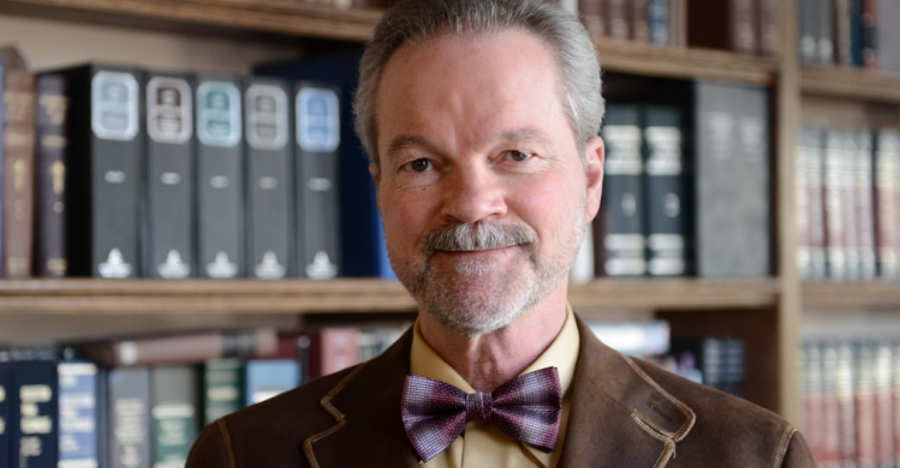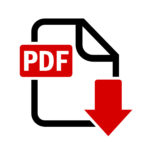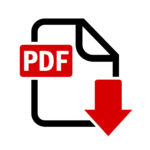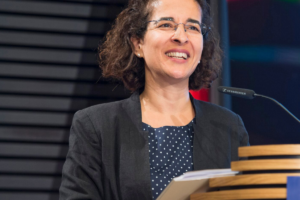By: Christopher Buck
Abstract: During the time that I taught at Michigan State University (2000–2004), I was invited to teach two semesters of “Islam” (REL 314, 2002–2003) at Central Michigan University in Mount Pleasant, Michigan. These were for-credit, night courses. During one of these courses, I invited a local imam (Muslim prayer leader) to give a lecture on Islam, from a Muslim perspective. One of the first things that he said to my students was an oft-repeated statement: “Islam is the religion of peace.” With the 9/11 terrorist attacks still fresh and indelibly etched into the minds of my students, it was clear that this platitude, however well justified it may have been, was as incredible as it was unqualified in the minds of the audience, especially that my guest speaker did nothing at all to nuance what he meant, or to distance moderate Islam from radical Islamism. It was around this time that I introduced my students to a paradigm of seven “Islamic responses to modernity”: Radical Islamism, Traditionalism, Neo-traditionalism, Modernism, Secularism, Postmodernism, and Post-Islamism. I would then ask my students to discuss current events in which Islam was prominently featured in the news. The question for discussion was this: “Which Islamic response to modernity is best exemplified here?”
Read more:
During the time that I taught at Michigan State University (2000–2004), I was invited to teach two semesters of “Islam” (REL 314, 2002–2003) at Central Michigan University in Mount Pleasant, Michigan. These were for-credit, night courses. During one of these courses, I invited a local imam (Muslim prayer leader) to give a lecture on Islam, from a Muslim perspective. One of the first things that he said to my students was an oft-repeated statement: “Islam is the religion of peace.” With the 9/11 terrorist attacks, still fresh and indelibly etched into the minds of my students, it was clear that this platitude, however well justified it may have been, was as incredible as it was unqualified in the minds of the audience, especially that my guest speaker did nothing at all to nuance what he meant, or to distance moderate Islam from radical Islamism. It was around this time that I introduced my students to a paradigm of seven “Islamic responses to modernity”: Radical Islamism, Traditionalism, Neo-traditionalism, Modernism, Secularism, Postmodernism, and Post-Islamism. I would then ask my students to discuss current events in which Islam was prominently featured in the news. The question for discussion was this: “Which Islamic response to modernity is best exemplified here?”
Today, whatever we say about contemporary Islam must be qualified. It is clear that not just Islam, but the world, is in crisis in so many ways, not the least of which is the global threat of terrorism. In classical Islam, the world was typically divided into two camps: the “Abode of Islam” (dār al-islām) and the “Abode of War” (dār al-ḥarb). This dichotomy must be abandoned, if not done so already. It is simply obsolete, and counterproductive—not only to the best interests of the traditional “Abode of Islam,” but to the best interests of the Islamic “other,” the “Abode of War.”
The same principle holds true for Islamic consensus (ijmāʿ). Consensus has a long history in Islam. Suffice it to say that, today, such consensus should, and must, widen to include the world as a whole. While Islam remains a “faith-community” (with its own diversity and divisions), Islam is under intense scrutiny by Muslims and non-Muslims alike. Therefore, in a real sense, the issue of “consensus” has necessarily broadened.
Consensus Building
Radical Islamism may largely be defined as an ideology that seeks to impose a literalistic interpretation of the Islamic law code (that is, one version of it), known as the Sharia, on a given population. Forced compliance with an extremist version of the Sharia presents an obvious moral dilemma: how can violent means justify a peaceful end? Broadly speaking, the Sharia is based on two major sources: the Quran (the sacred book of Islam) and the Traditions (the sayings and doings of the Prophet Muhammad). Since Muhammad is believed by Muslims to have been the perfect Muslim, patterning the life of Muslims worldwide after that of the Prophet is the primary purpose and goal of the Sharia, not to mention the aim of pious Muslims everywhere as well. The Sharia exists in four principal forms (“schools”) in Sunni Islam, and in one major form in Shia Islam. There are exceptions and variations, of course.
The Sharia consists of laws that Muslims are required to follow. Laws have been traditionally decided by Islamic jurists, generally referred to as the ulama. As promulgated and practiced today, the Sharia is primarily a system of conformity to prescribe behavior. It is a system of “imitation” (taqlīd). With the collapse of the Ottoman Empire and the abolition of the Caliphate by Kemal Ataturk, founder of modern-day Turkey, in 1924, no consensus has been achieved on challenges of Sharia in the modern world, since arguably no consensus involving the contemporary Muslim world is possible in the absence of a central Islamic authority. Pragmatically speaking, a popular consensus, rather than an official consensus sanctioned by traditional authority, is what is needed today.
If once considered carved in stone, the so-called “harsh” laws of the Sharia have long been under discussion by Islamic reformers. Take, for instance, the practice of amputation for repeat theft. Consider also the punishment of stoning for adultery. A charge of rape typically requires four male witnesses. But, with DNA testing, no witnesses are needed for positive identification of the rapist. Such examples represent the challenge of modernity to Islamic traditionalism. If there is to be “Islamic reform,” how should it proceed? Of course, Islamic reform cannot go forward unless and until there is some kind of consensus as to its necessity, at least as to specific issues that have become not only problematic, but detrimental to the reputation of Islam the world over, triggering the phenomenon of “Islamophobia,” which creates such hardships for Muslim minorities, especially in Western countries.
Discussions of Islamic reform tend to focus, if not fixate, on such issues as harsh punishment (such as whipping), sexuality, women’s rights, etc. Of course, the proverbial “elephant in the room” is the global threat of terrorism by radical Islamists.” If, today, the very concept of “Islam” has been perverted by radical Islamists and negatively stereotyped by popular detractors of Islam, then now is an ideal time for Islam to be re-examined, if not redefined, in such terms as can attract not only the consensus of Muslims worldwide, but can gain at least a modicum of global consensus as well.
It is not for non-Muslims to define what Islam is, much less how it should be practiced. But the point here is that, in an increasingly globalized world, whatever is done in the name of Islam is sure to have consequences and ramifications not only within majoritarian Islamic societies, but in the West and elsewhere around the world. This is not a question of appeasement or of subjecting Islam to the court of public opinion. It is simply an obvious statement of the very “public” topic of Islam today, and the fact that the present and future direction of Islamic thought and practice ultimately has direct and foreseeable global impact.
An Ethical and Moral Sharia
If asked, Muslims may be hard-pressed today to define Islam in terms of social ethics and moral imperatives. Such ethical imperatives would go far in attracting a growing consensus as to what Islamic precept and praxis should ethically entail. For this to actually happen—much less even to be possible—some robust principles need to be formulated that can serve as general propositions about Islam—ideas and ideals capable of gaining popular and official assent.
These general statements of social ethics and moral imperatives can operate as algorithms for establishing regulative ideals. I have borrowed this term from Sean McKeever and Michael Ridge, Principled Ethics: Generalism As a Regulative Ideal (Oxford: Oxford University Press, 2006), who use the phrase “generalism as a regulative ideal” passim but appear not to define “regulative ideal” as a philosophical term in its own right. This term comes from Immanuel Kant’s moral philosophy and theory of ethics, and has been defined as follows:
In our view, the best way to conceive of a virtue ethics criterion of right action is in terms of a ‘regulative ideal’. To say that an agent has a regulative ideal is to say that they have internalized a certain conception of correctness or excellence, in such a way that they are able to adjust their motivation and conduct so that it conforms — or at least does not conflict — with that standard. So, for instance, a man who has internalized a certain conception of what it is to be a good father can be guided by this conception in his practices as a father, through regulating his motivations and actions towards children so that they are consistent with his conception of good fathering. A regulative ideal is thus an internalized normative disposition to direct one’s actions and alter one’s motivation in certain ways. — Justin Oakley and Dean Cocking, Virtue Ethics and Professional Roles (Cambridge: Cambridge University Press, 2009), p. 25.
Such general standards could “codify” the Islamic ethical and moral landscape — an ethical and moral Sharia, if you will — and exert a sanguine influence on the world at large. These moral predicates can serve to unify Islamic belief and practice under an authentic Islamic paradigm, especially with a solid grounding in the Quran.
It is to the Quran that such ethical and moral grounding should primarily be sought. To do so requires the ability to extrapolate from key passages in the Quran general and profound ethical and moral principles upon which Islamic belief and practice may be predicated. Such principles, ideally, should be descriptive, evaluative, and prescriptive. In other words, authentic Islamic outlook and actions may be guided by the social and individual ethical norms, set forth as standards to which Muslims, in principle, should adhere.
A Proposal for the Quran-Based Moral Framework
Under this proposal, a clear method should be defined. Selection of key passages from the Quran should not simply be an idiosyncratic “pick and choose” process. Such a method for extrapolating principles of social ethics and moral imperatives from the Quran should follow a method that would enable the process to be replicated, with roughly the same results. Such a method would be self-validating, and would pass the test of falsifiability.
This strategy is easier said than done. Critics may dismiss such a project as ambitious and unrealistic, incapable of gaining widespread support. Crucial to the success of this project is the ability to specify social, ethical, and moral predicates that are not mere platitudes or empty aphorisms. Such principles should be ethically dynamic and morally robust, with the power to attract assent and inspire the corresponding action. At the individual level, “virtue ethics” have great importance. Social reform cannot occur absent such individual and collective commitments to such inter-subjectively available standards.
Such ethical and moral principles should aspire to be more than vacuous aphorisms. They should operate as mapped-out common ground, shared assumptions, agreed-upon expectations, and regulative ideals. Such principles should capture, as it were, the essence of Islam. These ethical predicates — social and individual nature — can operate as touchstones of ethical truth and as benchmarks of moral progress.
Whether others may be happy to embrace such a proposed project, or would otherwise balk at it, depends, in part, on the perceived integrity and utility of the enterprise as a whole.
There are those who may ask how moral knowledge is possible to define with any kind of certainty. This is where the concept of “revelation” comes into relevance. In fine, the whole idea of “revelation” is that it is a mode of communication whereby the will of God, writ large, is expressed to humanity at large. This is a fundamental predicate in the case of the Quran.
While non-Muslims are not expected to agree that the Quran is a collection of divine revelations imparted to the Prophet Muhammad over the span of 23 lunar years (much less obliged to obey its moral dictates), certainly all Muslims will agree that the Quran is an unimpeachable authority, binding on all Muslims. The question, then, is not as to the authority of the Quran itself, but to the legitimacy of any given interpretations.
If the moral framework of the Quran were totally obvious, then we would expect no disagreement over its fundamentals. Yet history has shown that such is not the case. That’s why the present proposal is simply a “preamble” — a prolegomenon. But at least the Quran provides a solid grounding for the epistemology of Islamic ethical and moral knowledge.
One may well ask as to the relevance of Islamic traditions. In the present writer’s view, any appeal to Sunni hadīth will not gain assent by Shia Muslims. Given the outbreak of Sunni/Shi‘i sectarianism today in the troubled hot spots and flash points of Iraq, Syria, Yemen, Bahrain and elsewhere in the contemporary Muslim world, some level of consensus between Sunni and Shi‘i Muslims is certainly desirable. Instantly, whether or not such agreement on a set of clearly defined Islamic social, ethical and moral principle is even possible cannot be determined until this experiment in consensus-building gets off the ground and begins to be operationalized.
Furthermore, without venturing too far afield into the controverted territory of “ḥadīth criticism,” suffice it to say that significant contradictions in the Traditions undoubtedly exist. Not only that, these contradictions may be explained. In early Islam, every “Islamic” law or practice had to have a “supporting” ḥadīth irrespective of its degree of authenticity or credibility. Thus, those contradictions that did arise are thought to reflect the contours of debates that occurred in early Islam.
Although both the Quran and Traditions constitute the two primary sources on which Islamic law is squarely based, reliance on both would constitute asymmetric dependence. Here’s why: few Muslims would disagree that the Quran has primacy over the Traditions. One axiomatic criterion of veracity for any given Islamic tradition is the simple premise that a given ḥadīth report cannot contradict the Quran. The primacy of the Quran as revelation will trump any tradition that is perceived as contradicting the ethical or moral dictates of the Quran. That said, simply citing verses from the Quran in support of a proposed ethical or moral principle, without more, is open to the so-called “vacuity objection.” Ample explanation of such principles is needed to overcome existing moral differences.
An ethical or moral principle is not the same as a scientific predicate. Each has a different normative framework. Science is empirical. Ethics are moral. A moral reason for any given action must be attractive and sufficiently motivating to a virtuous actor. In the case of Islam, the moral choice must appear to be fundamentally favored, if not required, by identifiable Islamic ethical or moral principles. That much may be fairly obvious. What may not be so obvious are which ethical principles may gain universal Islamic favor. This can never be known until field-tested.
Ideally, defining Islamic social ethics and moral predicates would have normative force. Any and all secondary reasons to justify moral decisions and actions, pursuant to any given Islamic principle, would be derivative, if not parasitic, in nature. Such would be the primary reason that a given Islamic ethical norm should enjoy, if not command, assent and corresponding action.
Lest this whole discussion appear too abstract, let’s consider a pragmatic point of departure. There is no question that the actions of the so-called “Islamic State” have shocked non-Muslims and Muslims alike. Acts of beheading, indiscriminate merciless torture and execution of military combat captives, committing genocide against minority groups, sexual slavery, and a host of other practices that have triggered widespread condemnation for the ethical and moral repugnance of such acts by the putative “Islamic State.”
Yet the question of why such practices should be rejected as patently and wholly un-Islamic may not always be obvious. A useful reflective exercise would be to subject each and every such practice promulgated by the Islamic State under the scrutiny of the question: “Is this Islamic or un-Islamic?” The corollary inquiry—“Why or why not?”—necessarily follows.
This reflective exercise need not occur in a vacuum. There is a long and rich tradition of Islamic ethics — known as ʿilm al-akhlāq — upon which to draw. Which particular work to invoke as an authority depends as much on the proponent as well as the topic. Again, the Quran remains the primary source and the surest resource on which any Islamic social ethic or moral principle may be based. This is a firm foundation that can rightly be termed “divine command ethics.”
Such default principles, if anchored in the bedrock of Quranic revelation, are immune to objections as to authority and/or vacuity, except for the question of interpretation. To cite a verse from the Quran is one thing. To interpret the same verse, which an agreeable interpretation that can gain widespread assent among Muslims, is quite another. Interpretations beg justifications.
Principles are guides, beacons of ethical enlightenment. A moral agent is a person of principle. It follows that a moral Muslim ideally is not only faithful to the spirit and letter of the Sharia, but is an erstwhile Muslim of principle. Such ethical knowledge endows and equips the moral agent with practical wisdom. From the general derives the particular.
Many Muslims believe that the Quran is the repository of all knowledge, whether spiritual or scientific. Leaving the question of the Quran and science aside, Muslims may universally agree that the Quran, as a direct revelation from God to humanity, contains all ethical and moral knowledge. Non-Muslims may join the choir of those Muslims whose ethical commitments, anchored in the Quran, are more or less commensurate with human rights and responsibilities as secularly defined. Total agreement is unlikely. But establishing much common ground will accrue to the benefit of the commonweal, whether in Islamicate societies or in places whether Muslims live as minorities in their host countries. A narrative-based approach provides a model of moral exemplarism that brings to life and vivifies ethical principles. Sura 12, the “Sura of Joseph” — the only sustained prophetic narrative in the Quran — offers an extended parable (for Muslims, a sacred history) rich with a moral vision, with the force of a grand, ethical norm. The story of Joseph has inspired a rich mystical tradition as well. Sura 12 is a moral sunna unto itself. Other Quranic narratives abound as episodic and paradigmatic moral exemplars.
Certain ethical predicates in the Quran may be grounded in the epistemology of the obvious. Obvious moral imperatives are not, of themselves, superficial. That said, less obvious, even subtle, ethical principles can and should be derived by sound interpretation. What constitutes the soundness of any given interpretation of the Quran should be based on a generally accepted method. The heuristics of social, ethical and moral interpretations — for example, of the Sura of Joseph — should be invoked, such that they can be replicated by other commentators, and otherwise accepted as veridical and verifiable ethical and moral commitments. In this way, a greater consensus may be achieved.
Spirituality refines intuition. Ethical standards guide moral deliberations. Such norms will gain intuitive plausibility. New and higher ethical “instincts” may be cultivated. If grounded in the Quran, a set of articulated social, ethical and moral principles may serve to heighten general awareness of the regulative ideals of “true Islam.”
Moral practice nurtures a solid foundation for a comprehensive ethical theory capable of contributing to social dynamics of consensus building. The same is true of societies as a whole. Thus, a clearly defined set of social ethics and moral principles, derived from sound Quranic interpretation, can transcend sectarian divides, and refine Islamicate and non-Islamicate societies alike, to the extent that ethical refinement is socially sublime.
Placing definitive ethical principles at the center of moral practice will have the benefit of redounding to the rehabilitated image of Islam as an intrinsically ethical and moral religion. Doing so may well prove to be the most effective long-term means for defeating such aberrant social phenomena as the putative and reprehensible “Islamic State,” thereby obviating military force in a “might makes right” clash—not of “civilizations,” but of radical versus moderate worldviews. In this respect, such “Islamic reform” is tantamount to “Islamic restorationism” — a kind of Islamic revivalism, as it were. At best, such a principled presentation of “Islam” — as proposed here—is not so much a redefinition as it is a reaffirmation (at a higher level of awareness) in which a Muslim, when asked, can clearly articulate those social, ethical and moral principles for which Islam proudly stands.
Postscript
Social evolution is coefficient with moral progress. Radical Islamism has shown itself to be institutionally unviable. Ethical progress is Islamic progress. To articulate these principles, a suitable framework must first be proposed. If interest is expressed in this proposal, then this project will advance to the next stage, God-willing.
This is essentially a collective enterprise — a work-in-progress. But the idea has to start from somewhere. Such an enterprise may be as fallible as it is promising. It is worth a try. Exploring the possibilities of universal Islamic principles or moral salience, with localized significance, potentially has great transformative social power, over time. In a global perspective, such an Islamically inspired project would contribute to a pluralism of ethical approaches on the path toward an international consensus.
In this way, Muslims may articulate a principled basis for their own actions, and may challenge others to present, reciprocally, a principled basis for their actions. Islamic principles, if clearly defined and if given widespread assent, will take on a life of their own, exerting moral power by virtue of their regulative ideals.






